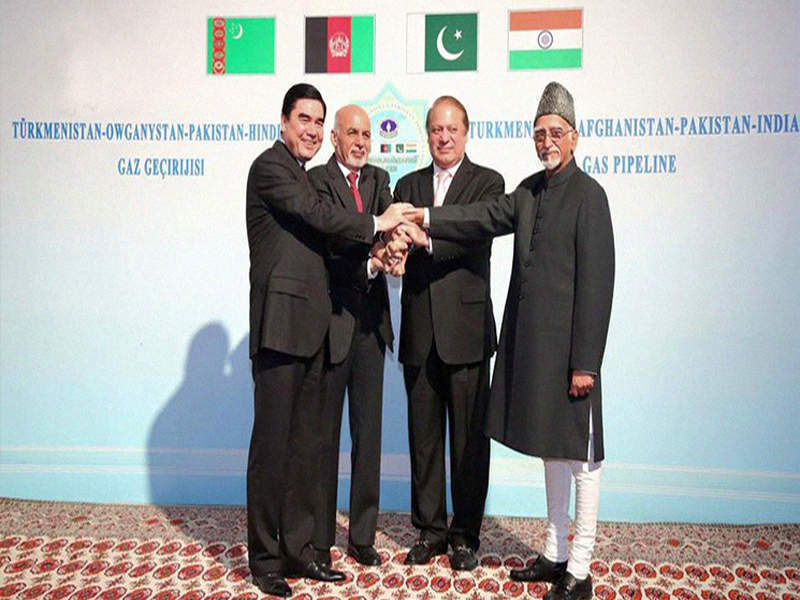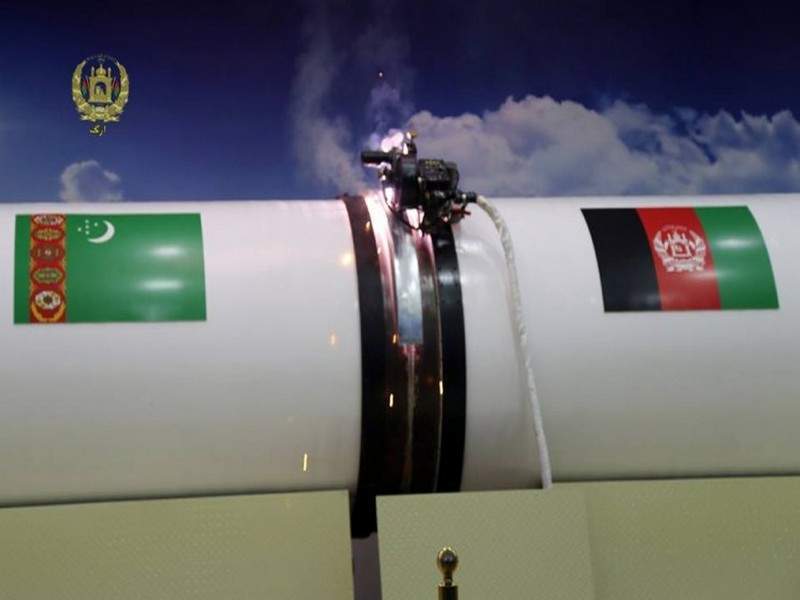TAPI Pipeline, also called Peace pipeline, is a 1,814km natural gas pipeline that originates from Turkmenistan and passes through Afghanistan and Pakistan to reach India.
It aims to monetise Turkmenistan’s gas reserves and supply them to neighbouring countries to promote the use of natural gas and improve energy security.
The project is being developed by TAPI Pipeline Company (TPCL), a consortium established by four individual state-owned gas companies Turkmengaz (Turkmenistan), Afghan Gas (Afghanistan), Interstate Gas Service (Pakistan), and Gas Authority of India and Indian Oil (India). The four countries signed an Inter Government Agreement (IGA) and Gas Pipeline Framework Agreements (GPFA) in December 2010 for the development of the pipeline.
Construction on the project commenced in 2015 and is expected to be completed by 2020, at an estimated cost of $10bn.
TAPI pipeline design and capacity details
The TAPI pipeline will have a total length of 1,814km, out of which the first 214km section will run from Turkmenistan to Afghanistan. Another 774km of the pipeline will pass through Kandahar and Herat highway in Afghanistan.
“The construction of TAPI pipeline started in the Mary region of Turkmenistan. ”
The pipeline will cover 826km in Pakistan and end in Fazilka, located at the Indo-Pakistan border in a town in Punjab, India.
The pipeline will have a diameter of 56in and a working pressure of 10,000kPa. Designed to serve for 30 years, it will have a capacity of 33 billion cubic metres (bcm) of gas.
Construction of the TAPI pipeline
The construction of TAPI pipeline started in the Mary region of Turkmenistan. Interstate Gas Systems (ISGSL) began the FEED activities for the pipeline section in Pakistan in March 2017, while the construction is expected to start in 2018.
The company has commenced the tendering process for the selection of an engineering and procurement and construction (EPC) contractor for the section.
Financing for TAPI natural gas pipeline project
The TAPI Pipeline Investment Agreement was signed by TPCL and Asian Development Bank in April 2016, under which the latter will provide an initial funding of $12m for the pipeline.
Islamic Development Bank is providing $700m for the construction of the pipeline in Turkmenistan, under an agreement signed with the Government of Turkmenistan in October 2016.
Gas supply for TAPI pipeline
The pipeline will receive gas from the Galkynysh (previously known as South Yoiotan Osman) gas field located in Turkmenistan, which has total gas reserves of 16 trillion cubic feet.
Pakistan and India are expected to purchase 42% or 13.8bcm of the gas a year, while Afghanistan is expected to purchase 16% or 5.11bcm of the gas a year.
Pakistan and India will pay $400m a year to Afghanistan as the transit fee.
Contractors involved
Asian Development Bank contracted UK-based engineering and project management company, Penspen, to carry out a technical feasibility study of the project. Penspen examined the route and cost of the project along with other specifications of the infrastructure for the project.
Netherlands-based company Royal HaskoningDHV was sub-contracted by Penspen for studying fundamental environmental and social protection components of the study.
Turkmengas awarded a $40m contract to Global Pipe Company, a joint venture of German and Saudi companies, Erndtebruecker Eisenwerk and Saudi Steel.
TPCL contracted ILF Beratende Ingenieure to provide front-end engineering and design services in January 2017.




